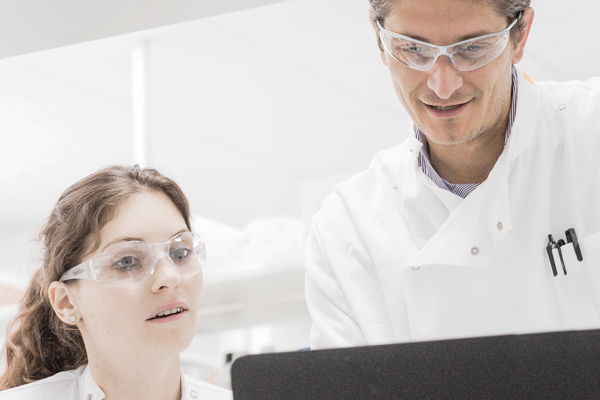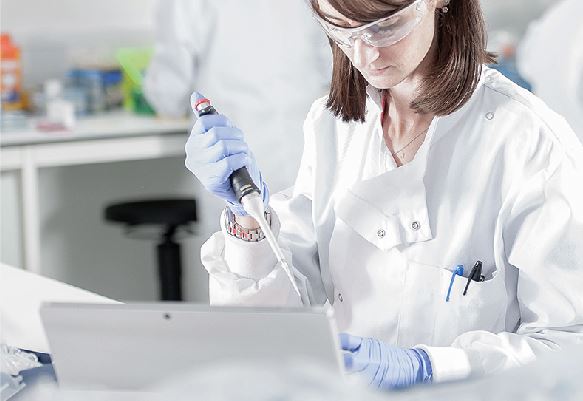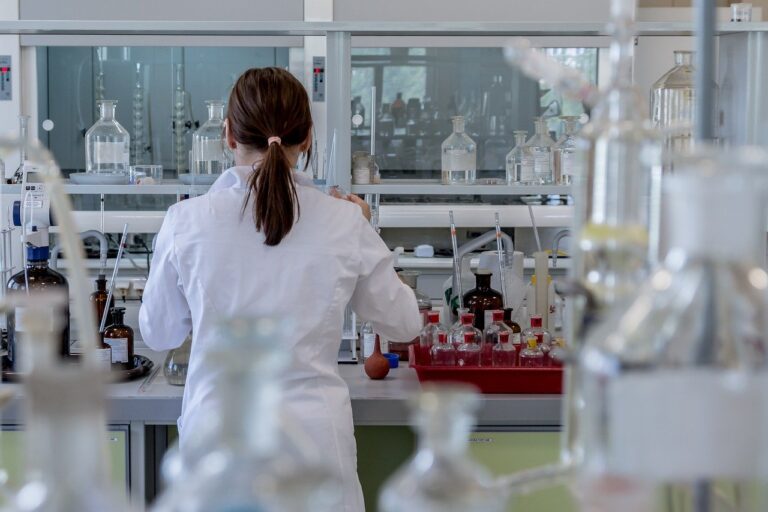Avacta Group plc (LON:AVCT) Chief Executive Officer Alistair Smith caught up with DirectorsTalk for an exclusive interview to discuss progress of the COVID-19 antigen test strips, the next steps in development with Cytiva and how some of the Affimer reagents can prevent the virus from getting into human cells.
Q1: This morning you announced a positive progress update regarding the rapid COVID-19 antigen test development with Cytiva. Could you talk us through that update please?
A1: Just as a reminder, we are using Avacta Group’s Affimer reagents to develop a rapid test strip that intends to use saliva as the sample to detect the virus antigen. So, that’s a test that’s designed to tell you in a few minutes whether you’ve got the disease right now or not and not an antibody test that tells you whether you’ve had it for a while or in the past. So, that’s what we’re developing.
The announcement today was to update the market on positive results from the first set of test strips developed by Cytiva.
So, patients with COVID-19 show a range of concentration of the virus in their saliva and I’m pleased to say that the first attempt, which we announced this morning, the test strips are detecting these spike protein within that clinic development range.
Q2: So, what are the next steps in the development plan with Cytiva?
A2: This is a really good start, now our partners at Cytiva are working to refine and optimise all the different components of the test strips so we can detect the lowest possible concentration of the coronavirus spike protein in the samples. That’s important because it’s going to be a major factor in determining the clinical sensitivity of the test which is key obviously.
Once we’ve optimised the test strip then we’ll have a design that we can transfer to manufacturers who we’re putting in place at the moment. One of our biggest challenges right now is in compressing the normal diagnostic development timeline which could be 18 months or more and compressing that into a matter of weeks.
When we’ve put those manufacturing partners in place and we’ve agreed with them those development plans and timeline then we’ll be able to update the market more accurately.
Q3: Now, you also recently announced that some of the Affimer reagents that you’ve developed which block the interaction between the virus spike protein and a human cell receptor have now been shown to prevent infection of human cells in a model coronavirus system. Could you explain that please?
A3: So, as you said, some of the Affimer reagents that we generate for diagnostic purposes, which is our focus, also block the interaction between the virus spike protein and a receptor on human cells called ACE2. The binding of the coronavirus spike protein to ACE2 is the first step in the virus infecting human cells so in principal, if you can prevent that interaction from occurring you’ve got the potential for a treatment for COVID-19.
Last week, working with Professor David Bhella’s group at Glasgow University Centre for Virus Research, using a model for the coronavirus, Avacta Group showed that if you treat the virus with the Affimer reagents then the virus is prevented from getting into human cells.
So, that’s a really interesting finding and there’s numerous large pharmaceutical companies now investing heavily in developing these types of, what we call, neutralising therapies. We’re working hard to secure a partnership to develop potential Affimer therapies for COVID-19.








































